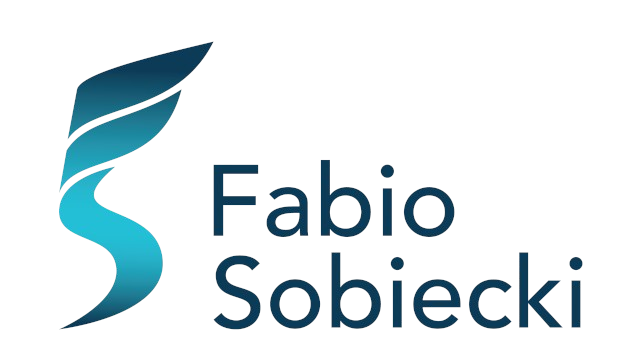Obtaining the CISSP certification is a significant milestone for information security professionals. But where to start? This guide will walk you through the fundamental steps to start planning effectively. We’ll explore everything from understanding the requirements to practical study tips. Follow along and get ready for the challenge!
Understanding the Importance of CISSP Certification
The CISSP (Certified Information Systems Security Professional) certification is one of the most important credentials in the field of information security. It opens doors to various career opportunities and is widely recognized in the market. Here are some reasons why this certification is so important:
- Global Recognition: The CISSP certification is internationally recognized, increasing your credibility as an information security professional.
- Professional Enhancement: Having the CISSP can result in higher salaries and better job opportunities.
- Networking: Be part of a community of security professionals who can offer support and opportunities for collaboration.
- Continuous updating: The certification requires continuing education, ensuring that you are always up to date on the best practices and technologies.
Prerequisites for CISSP
Before registering for the CISSP exam, it is important to understand the requirements. These include:
- Professional Experience: To obtain the certification, you need at least five years’ experience in information security, with at least three areas of the CBK (Common Body of Knowledge).
- Credential Compliance: If you don’t have the five years of experience, you may need to obtain an ISC² Associate, which allows you to study and earn certification by demonstrating your experience later.
- Academic background: A university degree can count as one year’s experience, as can a recognized security certification such as CISA or CISM.
Choosing the Right Study Material
Selecting the right study material is key to success in the CISSP exam. Here are some suggestions:
- Recommended Books: The “CISSP (ISC)2 Certified Information Systems Security Professional Official Study Guide” is one of the most popular. Other books may also be useful.
- Online courses: Platforms such as Coursera, Udemy and Cybrary offer specific courses for the CISSP and can be very beneficial.
- Study Guides: Use study guides and summaries available on the internet. They help you visualize important topics.
- Mock tests: Practicing with mock tests is a great way to familiarize yourself with the exam format and increase your confidence.
Effective Study Strategies
To prepare properly, implement some study strategies:
- Create a Study Schedule: Define a schedule that covers all the CISSP topics and always keep up with it.
- Divide the Content: Break the material into smaller sections. Studying a little every day is more effective than trying to absorb everything at once.
- Use memorization techniques: Techniques such as flashcards, diagrams and mind maps can help you retain knowledge.
- Join Study Groups: Joining a group can provide support and an exchange of knowledge between participants.
Time Management for CISSP Students
Time management is crucial when preparing for the CISSP:
- Set Daily and Weekly Goals: Set specific goals about what you need to study each day or week and review them regularly.
- Set aside time for revision: Set aside regular times just to revise the material you’ve already studied.
- Avoid procrastination: Stay focused and avoid distractions. Establish a study space free from interruptions.
- Use Pomodoro Techniques: This technique involves 25 minutes of focused work followed by a short break, helping to maintain productivity.
Tips for CISSP Exam Day
Exam day can be stressful, but a few tips can help:
- Get a good night’s rest before the exam: A good night’s sleep before the exam is vital for concentration.
- Eat properly: Eat a light, nutritious meal before the exam. Heavy food can cause discomfort.
- Arrive Early: Plan to arrive at the exam venue in advance to avoid last-minute jitters.
- Read the questions carefully: In the exam, read each question carefully and eliminate the options that seem incorrect before choosing your answer.
How to Use Online Resources and Study Groups
Online resources and study groups are valuable tools:
- Forums and Communities: Join forums, such as Reddit or LinkedIn groups, where professionals discuss their experiences and tips.
- Virtual Study Groups: Form virtual groups with fellow students. Video calls can be a great way to interact.
- Webinars and Lectures: Watch specialized webinars to gain new insights and tips on the CISSP certification.
- Social networks: Use platforms like Twitter and Facebook to connect with others who are preparing for the exam.
Psychological preparation for the exam
Psychological preparation is just as important as technical study:
- Practice meditation: Meditation techniques can help reduce anxiety and improve concentration.
- Positive visualization: Imagine yourself passing the exam. This can boost your confidence and motivation.
- Physical exercise: Regular physical activity helps relieve stress and improves mental clarity.
- Keep a Positive Attitude: Surround yourself with positive thoughts and avoid discouragement. Believe in your abilities!
Common Mistakes to Avoid During Preparation
Identifying common mistakes can help you avoid pitfalls during your journey:
- Postpone studying: Don’t leave everything to the last minute. Plan and start your studies in advance.
- Focus Only on Simulations: Although simulations are useful, it’s important to understand the concepts behind the questions.
- Ignore Weak Areas: Don’t neglect the areas where you have the most difficulty. Dedicate extra time to improving them.
- Overloading Yourself with Material: Focusing on too much information at once can be confusing. Choose your resources wisely.
Maintaining Motivation Throughout the Process
Motivation is key to preparation:
- Set Rewards: Establish small rewards for each goal achieved, so you stay motivated.
- Visualize the Benefits: Remember the benefits that certification will bring to your career.
- Connect with Other Students: Share your journey with others who are also preparing, this can provide mutual support.
- Review Progress Regularly: Evaluate your progress visually. Seeing how far you’ve come can be very motivating.

